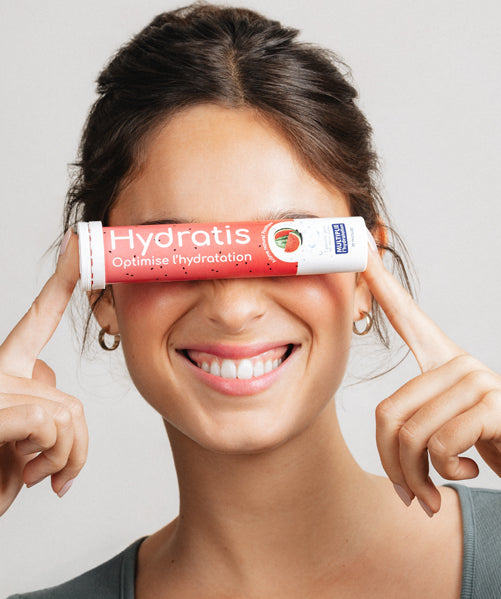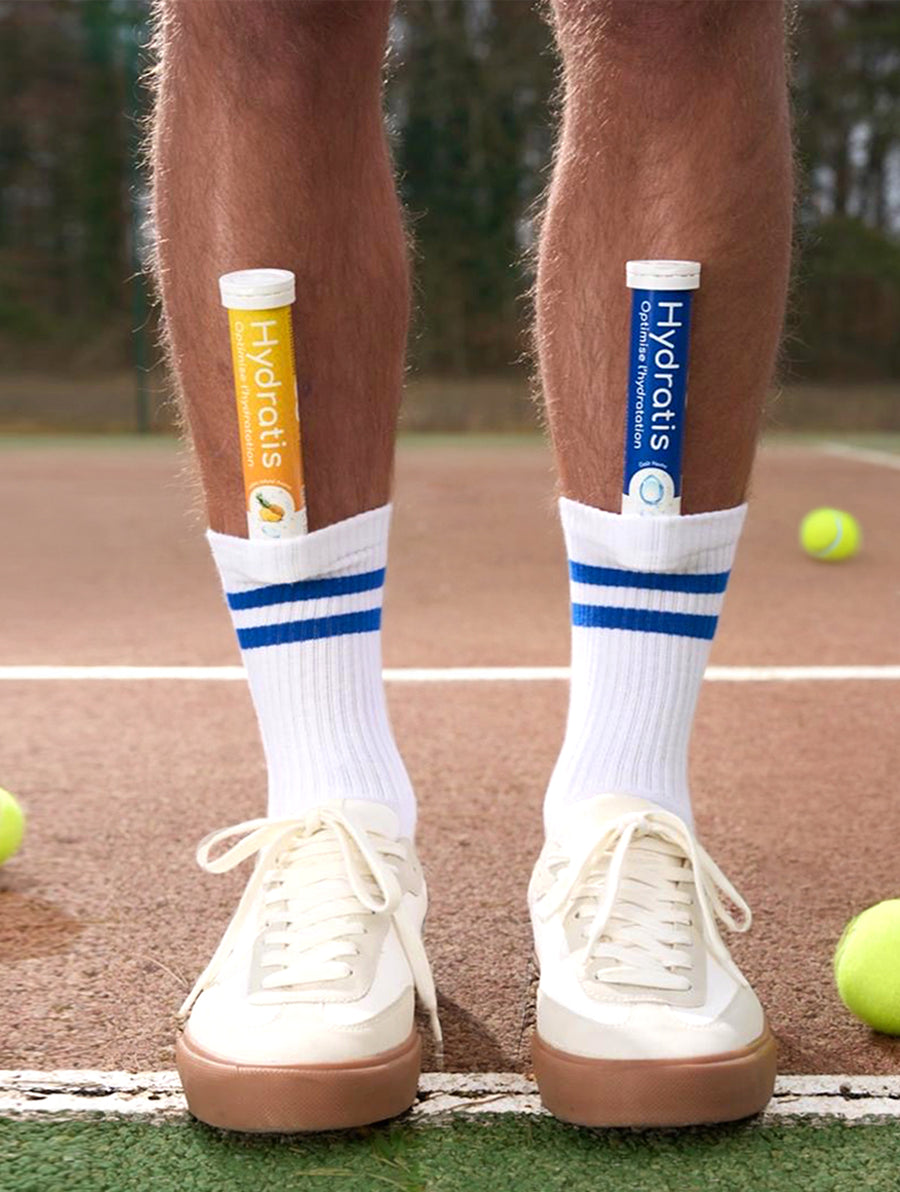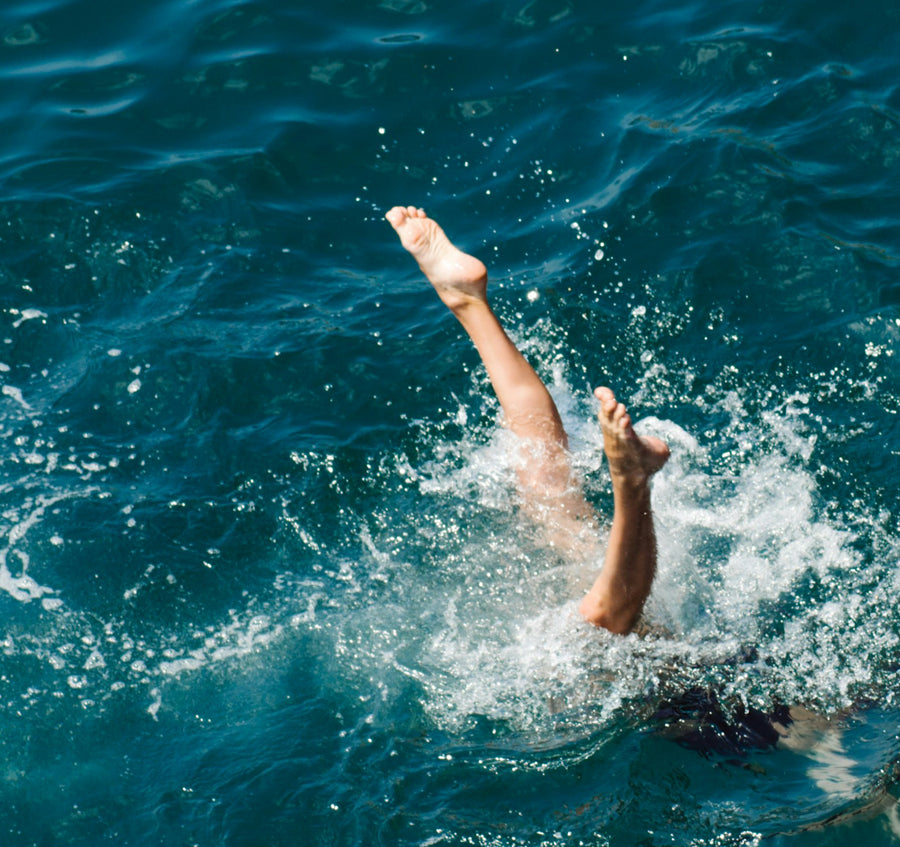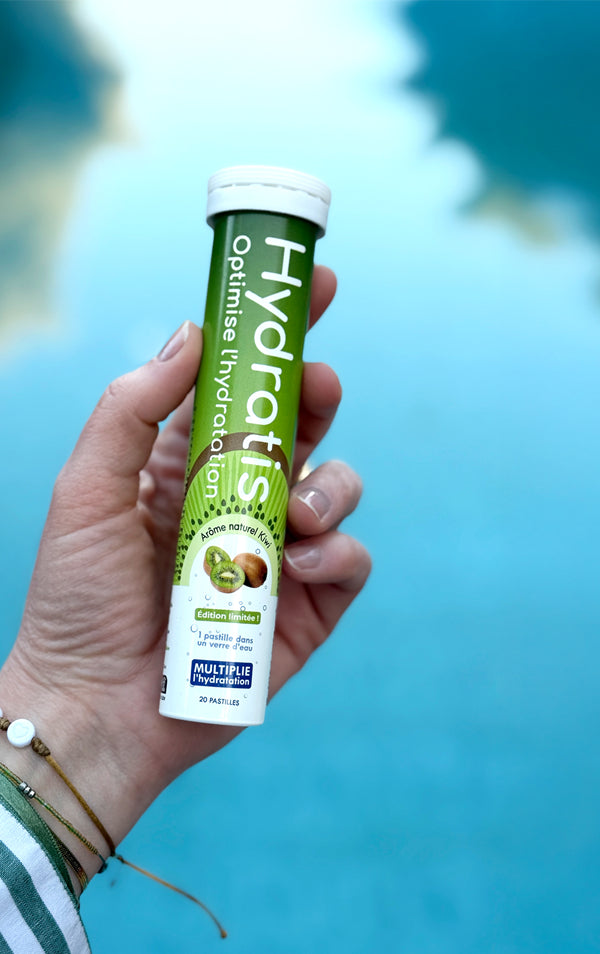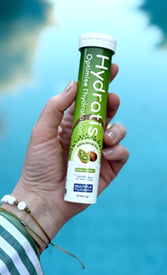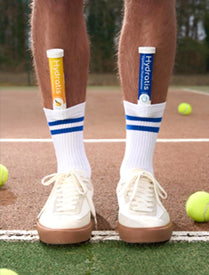1. Why is it important to rehydrate quickly?
Water is essential for bodily function, so dehydration can cause several uncomfortable symptoms. The initial impact on your health will be physical, with fatigue , cramps, and dry skin . Then, it will affect your mental state, with decreased concentration and confusion . Finally, persistent dehydration can lead to kidney stones and even kidney failure .
The time required for rehydration depends on the severity of the dehydration. For mild dehydration, it takes a few hours, with regular hydration. For more severe dehydration, it can take a full day. In this case, consuming electrolyte drinks, for example, is necessary. In the most serious cases, intravenous rehydration is required and can take several days.

2. What are the signs of dehydration?
The different solutions for rehydration vary depending on the cause of dehydration. Some situations require simple fluid intake , while others involve specific electrolyte rebalancing to compensate for mineral losses and maintain proper cellular function.
3. What is the best drink for hydration?
To rehydrate effectively, simply drinking water isn't enough. It's essential to replenish mineral reserves, such as sodium , potassium , and magnesium . Dehydration is not only a loss of fluids but also an electrolyte loss!
Here are the main options available for rehydration:
- Water alone is the most logical and accessible option , but it does not contain enough electrolytes.
- Diluted fruit juices provide potassium and glucose, but their sugar content must be monitored.
- Electrolyte drinks are particularly effective because they contain water and minerals.
- Oral rehydration solutions, recommended by healthcare professionals, are the most effective in combating dehydration but are primarily intended for young children.
Each electrolyte plays a key role in hydration: sodium helps retain water, potassium regulates fluid balance, and magnesium supports muscle and nerve function.

4. How to properly rehydrate depending on the situation?
The different solutions for rehydration vary depending on the cause of dehydration. Some situations require simple fluid intake, while others involve specific electrolyte rebalancing to compensate for mineral losses and maintain proper cellular function.
4.1 In case of gastroenteritis or fever
During gastroenteritis , diarrhea and vomiting lead to a rapid loss of water and electrolytes (sodium, potassium, chloride). These losses are particularly critical in children and infants, as their small body mass makes them more vulnerable to dehydration.
In infants and young children, it is essential to administer oral rehydration solutions (ORS), as recommended by the WHO. These solutions contain a precise mixture of glucose and electrolytes that allows for effective rehydration via sodium-glucose transport in the intestine.
In adults, except in cases of severe dehydration, oral rehydration solutions (ORS) are not always necessary. An electrolyte drink or salted broth may be sufficient to compensate for fluid and mineral losses.
Fever causes excessive sweating, thus increasing the risk of dehydration. Water alone may be sufficient for a mild fever, but if sweating is significant or food intake is reduced, a drink containing minerals (broth, diluted fruit juice, electrolyte drink) may be beneficial.
4.1 In case of gastroenteritis or fever
During gastroenteritis, diarrhea and vomiting lead to a rapid loss of water and electrolytes (sodium, potassium, chloride). These losses are particularly critical in children and infants, as their small body mass makes them more vulnerable to dehydration.
In infants and young children, it is essential to administer oral rehydration solutions (ORS), as recommended by the WHO. These solutions contain a precise mixture of glucose and electrolytes that allows for effective rehydration via sodium-glucose transport in the intestine.
In adults, except in cases of severe dehydration, oral rehydration solutions (ORS) are not always necessary. An electrolyte drink or salted broth may be sufficient to compensate for fluid and mineral losses.
Fever causes excessive sweating, thus increasing the risk of dehydration. Water alone may be sufficient for a mild fever, but if sweating is significant or food intake is reduced, a drink containing minerals (broth, diluted fruit juice, electrolyte drink) may be beneficial.
5. How to make a homemade hydration solution?
Here is a quick and effective recipe so you can make your own drinks to stay optimally hydrated.
Here are the ingredients:
- 1L of water
- 10 to 30g of sugar (depending on your taste)
- ½ teaspoon of salt
- Lemon juice
Simply mix all the ingredients and keep your drink chilled. Consume within 24 hours.
6. When should you seek medical help?
Medical help is essential if the person loses consciousness, does not produce urine for more than 8 hours, or shows symptoms of severe dehydration.
In babies, it's cause for concern if they don't cry, refuse to drink, or don't urinate at least three times a day. A consultation is also necessary in cases of high fever, persistent diarrhea, or vomiting. In all cases, we advise you to consult a healthcare professional.
